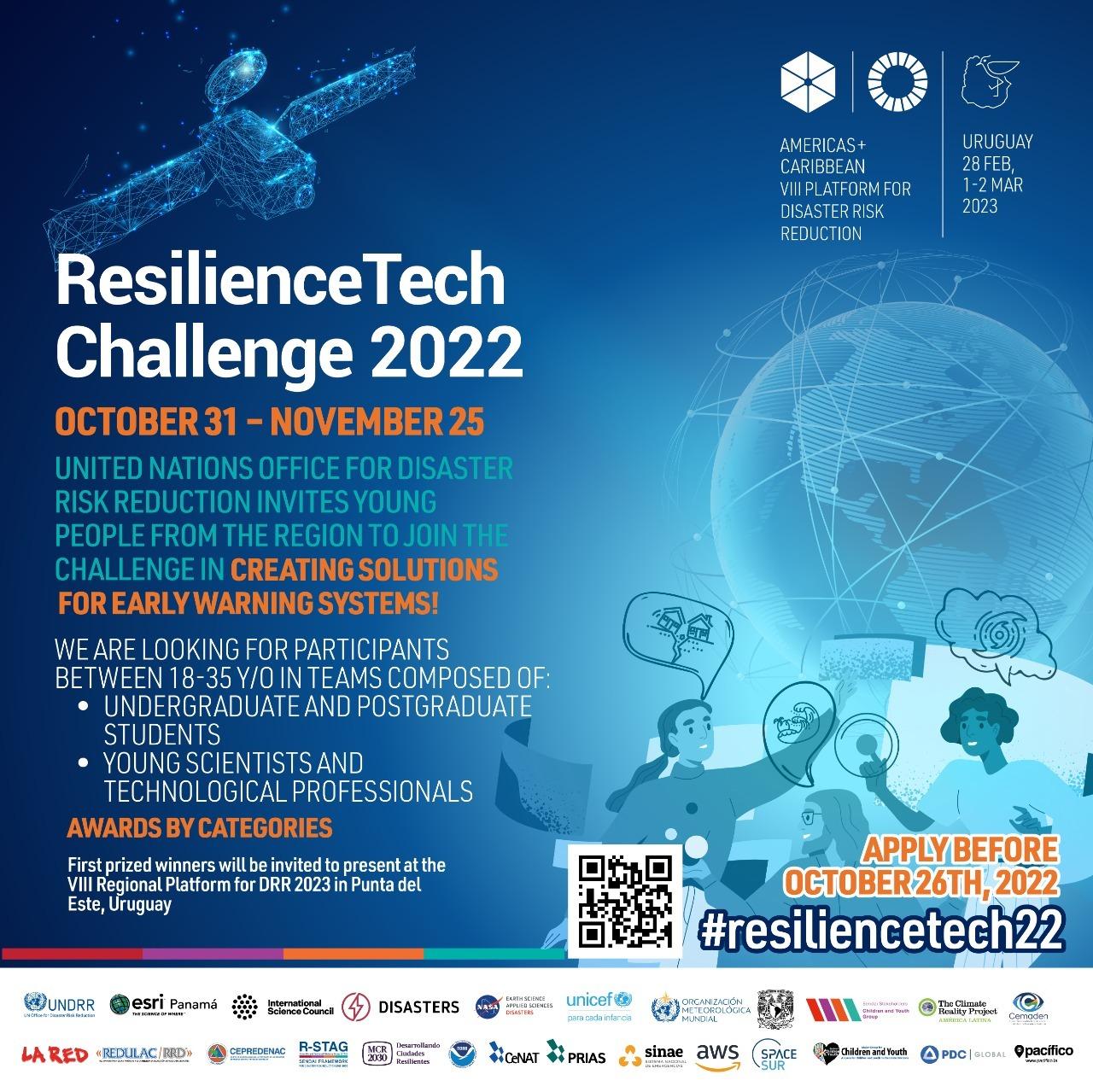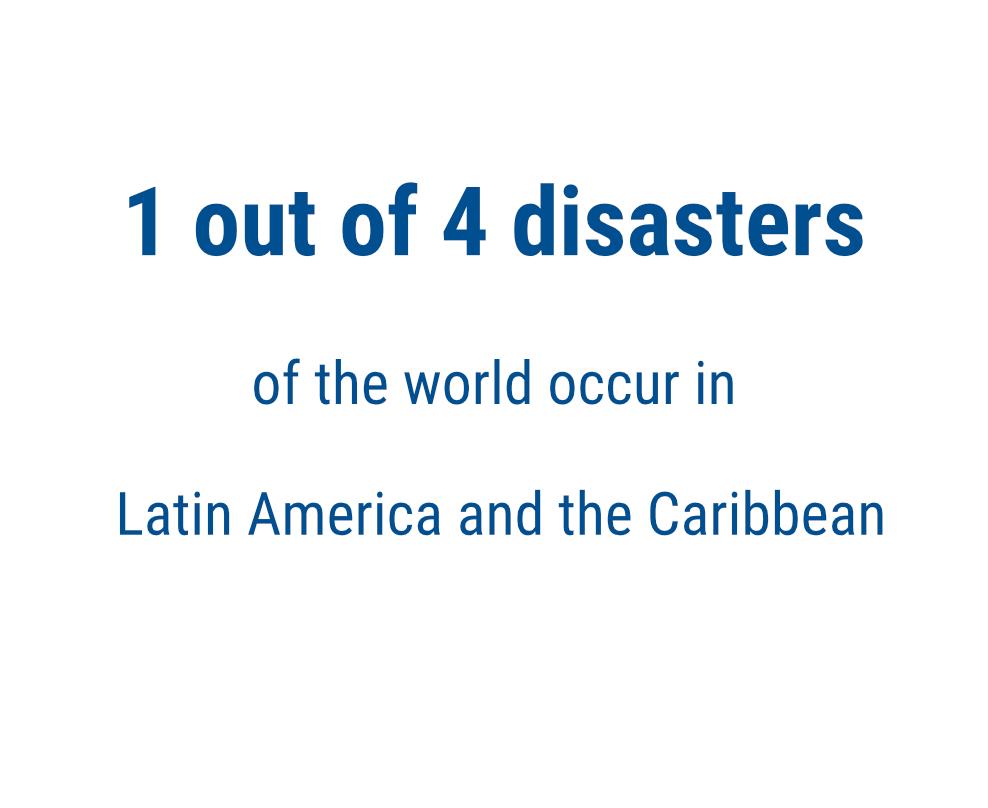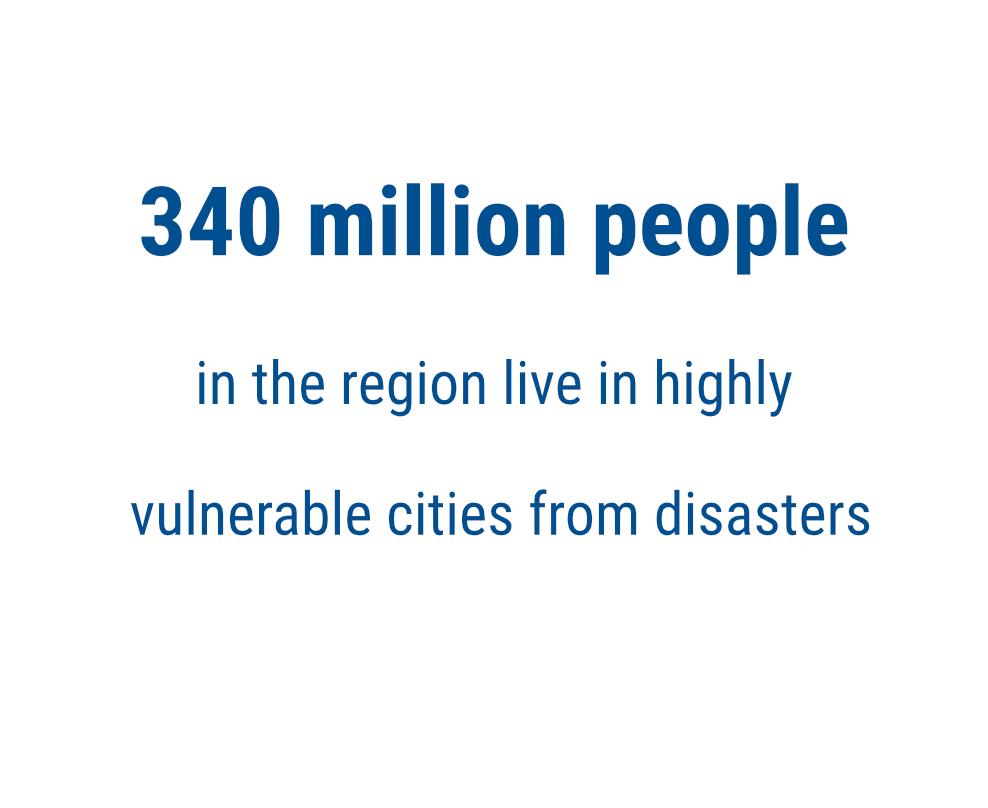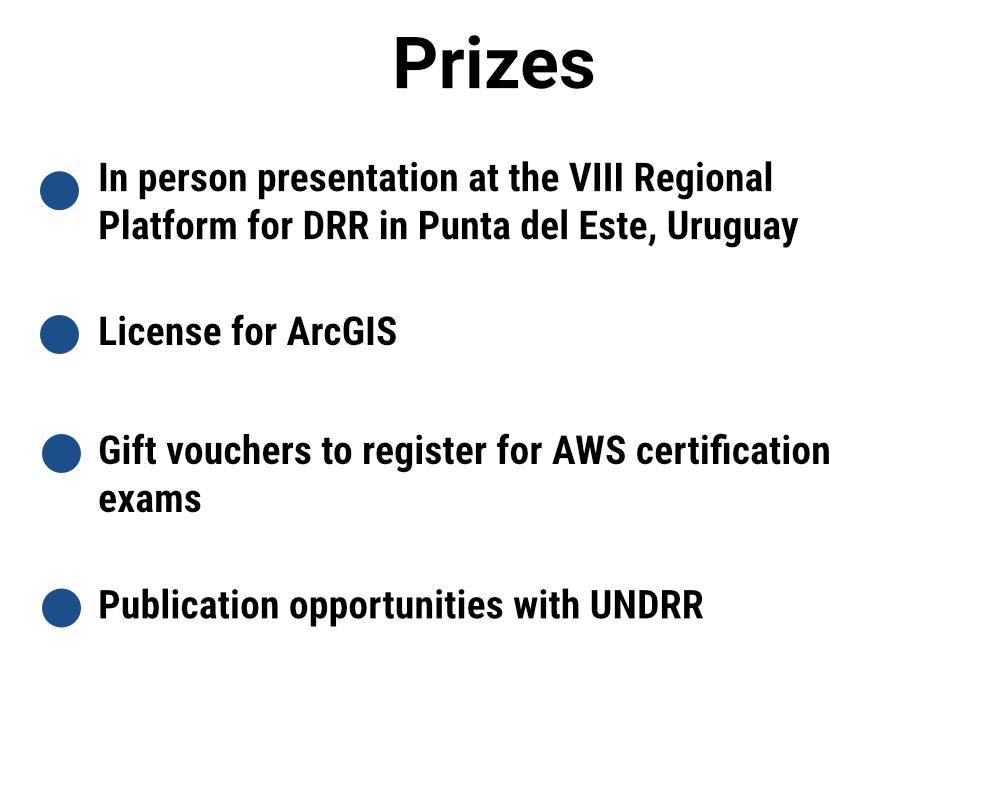


Countries within Latin America and the Caribbean are vulnerable to a range of natural hazards including droughts, floods, hurricanes, earthquakes and volcanoes. According to the Intergovernmental Panel on Climate Change (2012, 2021), climate change will allow for a change in the frequency, intensity, duration and spatial extent of the hydrometeorological hazards. For the region, this may mean stronger hurricanes, more persistent droughts and more frequent flood events.
In 2020, the United Nations Office for the Coordination of Humanitarian Affairs declared Latin America and the Caribbean as the second most disaster-prone region in the world, with 1 out of 4 disasters in the world occurs in the Latin American and Caribbean region (RAR 2021). Between 2000 and 2022, LAC experienced approximately 2,125 disasters, with more than 294 million people affected and an economic impact of 1.65 trillion in total damages. These disasters originated from 809 floods, 408 storms, 91 droughts and 67 extreme temperature events during that time period. As a result, improving the region's resilience from climate change and its related hazards is important to maintain sustainable livelihoods and reduce risks. Apart of the strategies for improving resilience is through the development of preparedness mechanisms, such as early warning systems, which is ‘an integrated system of hazard monitoring, forecasting and prediction, disaster risk assessment, communication and preparedness activities, systems and processes that enables individuals, communities, governments, businesses and others to reduce disaster risks in advance of hazardous events” (UNDRR, 2016).
Nonetheless, given the cultural, ethnic and social diversity of the Americas and the Caribbean, the relationship between people and technology can be different and often complementary to other types of knowledge. Experience has shown that technological tools have difficulties of assimilation if their developers and managers do not consider the cultural particularities and the visions and knowledge of the communities. In this sense, the promotion of technologies should be presented as a complement to existing knowledge systems and not as an exogenous package that competes with previous "technological frameworks".
The discussion on the development, access and use of technology must also consider the context of inequality and exclusion that prevails in the region, and that has concrete manifestations in the capacities of use and exploitation of technology. The pandemic illustrated the existing digital divide and how millions of people do not have the same opportunities to adapt to virtuality.
These limitations consider the absence of enabling conditions for the access and use of different technologies, such as the resources to purchase computer equipment or, as elementary as the economic solvency to pay the balance of a mobile phone; or have the necessary skills and digital literacy to be able to use and take advantage of these tools. These are a few examples of domestic situations that are repeated throughout the region. These and similar gaps will also be present in aspects more closely linked to disaster risk management activities, especially in rural areas.
ResilienceTech22 seeks to find innovative strategies for early warning systems at the local level that bridge the digital divide through simple solutions considering the limitations described above.
Challenge:
Simple solutions for Early Warning Systems (EWS) at the local level
Criteria of participants
- Tertiary level students, undergraduates, postgraduates or young scientists from research institutions (18-35 years).
- Max. 5 people per team.
- The team must be multidisciplinary and transdisciplinary.
- Each member must be (originating/resident) from the Americas and Caribbean region.
- Must apply with a mentor.
Description
The ResilienceTech22 will happen over four weeks, where DRR experts will be providing context of the region and discussing current trends and opportunities. All participants will be supported by mentors through Q&A sessions and given technical support for ArcGIS and technical guidance from ESRI, NASA Disasters and Amazon.
Follow the link to register for the ResilienceTech22 competition.
For any questions or concerns please reach out to us at: [email protected].


Please register to the informative session through the following link:
